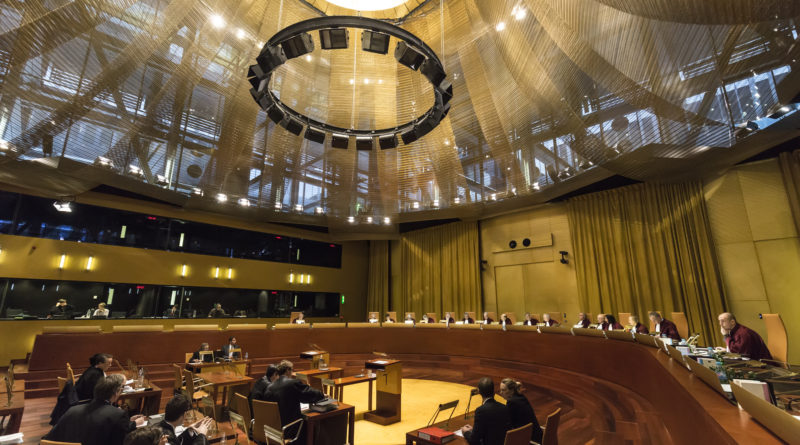EU Court of Justice to rule whether Brits can retain EU citizenship post Brexit
The Amsterdam District Court will ask the European Court of Justice to clarify whether British nationals living in other EU countries can retain their EU citizenship after the UK leaves the European Union.
The landmark decision could have consequences for the Brexit negotiations on citizens’ rights. Based on the EU-UK agreement of December, Britons living in the EU are bound to lose their free movement rights in the EU27 because of the loss of EU citizenship.
“It is clear that the EU and UK cannot finalise and sign off the final text on citizens’ rights in the withdrawal agreement until the Court of Justice of the European Union (CJEU) has given its ruling and we would ask them to respect the role of the CJEU in this process,” said Jane Golding, chair of the British in Europe coalition.
The case was brought to the Dutch court by the Brexpats Hear Our Voice (BHOV) Foundation, with five British citizens living in the Netherlands and the Commercial Anglo Dutch Society. Article 20 of the EU Treaty grants EU citizenship to nationals of EU member states but does not say what happens if a country leaves the Union. Nor is this specified in Article 50 of the Treaty, the legal basis for a country departure. As national courts can demand a preliminary ruling from the EU Court, the group pursued this way to get clarification on their rights.
The Amsterdam Court will now ask the CJEU if the withdrawal of the UK from the EU automatically leads to the loss of EU citizenship, and the rights deriving from it, for British nationals. If the answer is negative, the Court will also ask whether conditions or restrictions should be imposed on the maintenance of the rights and freedoms derived from EU citizenship after Brexit.
Based on an unofficial summary of the decision prepared by Bureau Brandeis, the law firm acting for the claimants, the Court stated:
Once lawfully acquired, EU citizenship is an independent source of rights and obligations that can not be simply reduced or affected by national government action.
The essence of a democratic constitutional state is that the rights and interests of minorities are protected as much as possible. The same applies to the functioning of the EU as a whole which forms a democratic community of (member) states governed by the rule of law.
The decision reminds that the status of EU citizens also affects the right of residence of third-country nationals if there is a “dependency relationship”.
“This interpretation applies to all British citizens born before the Brexit date, not only those living now in other EU countries,” said Jolyon Maugham, the QC assisting the case who has previously supported other legal actions related to Brexit.
“We are delighted that the Dutch court has decided to refer this case to Luxembourg. The applicants have raised fundamental questions about the nature of their EU citizenship and the circumstances in which such essential rights can be taken away. The CJEU has played a key role in clarifying the scope of EU citizenship and it is appropriate that it should be asked to identify when those rights end,” said Jane Golding.
“This is an important breakthrough enabling the European Court to provide guidance on what happens to Union citizenship when a country leaves the EU. Let’s hope the judges recognise that a citizenship status they describe as fundamental cannot just be wiped clean like a slate. The Amsterdam case is all the more important because the negotiators in Brussels don’t want to touch the issue,” commented Tony Venables, chair of the ECIT Foundation on EU citizenship in Brussels. “I have complained about this unprecedented act of maladministration to the European ombudsman. More appeals to courts will be needed and eventually a change in the EU Treaties for EU citizenship to become more inclusive and Europe-wide.”
A summary in English of the decision is available on Jolyon Maugham website.
Claudia Delpero © all rights reserved.
Photo © Court of Justice of the European Union.




